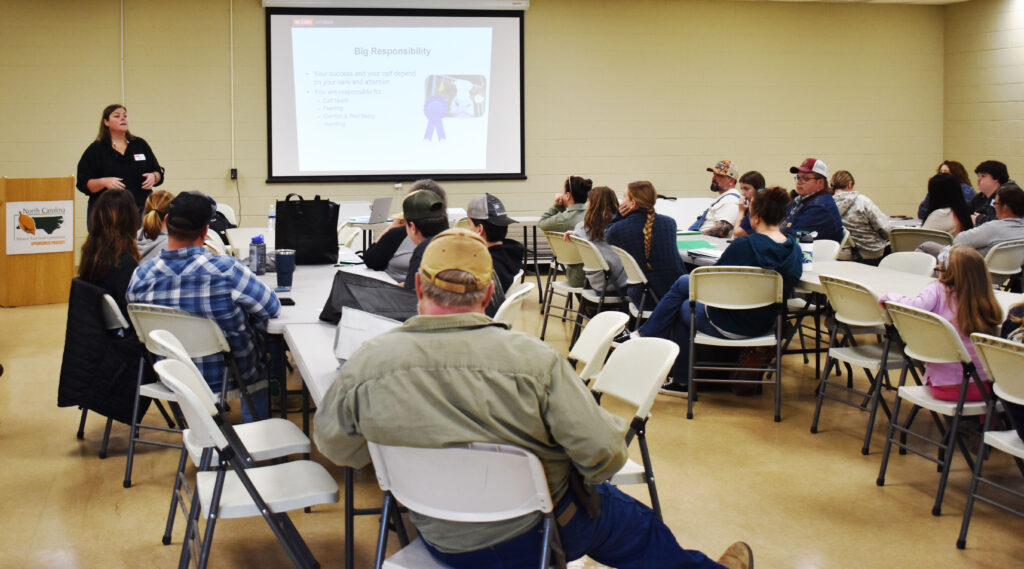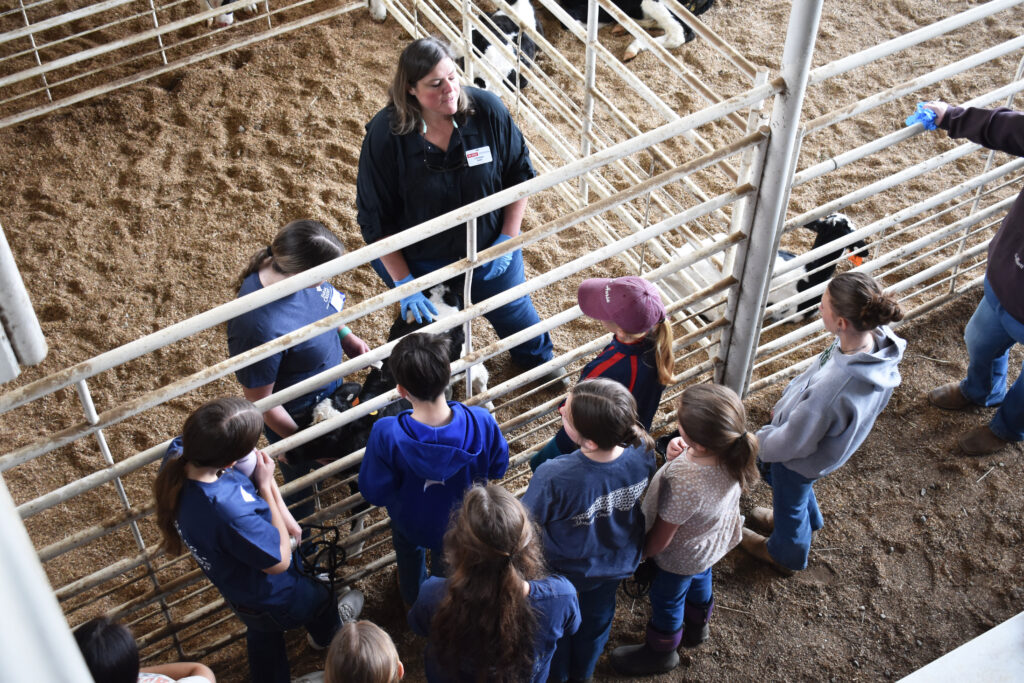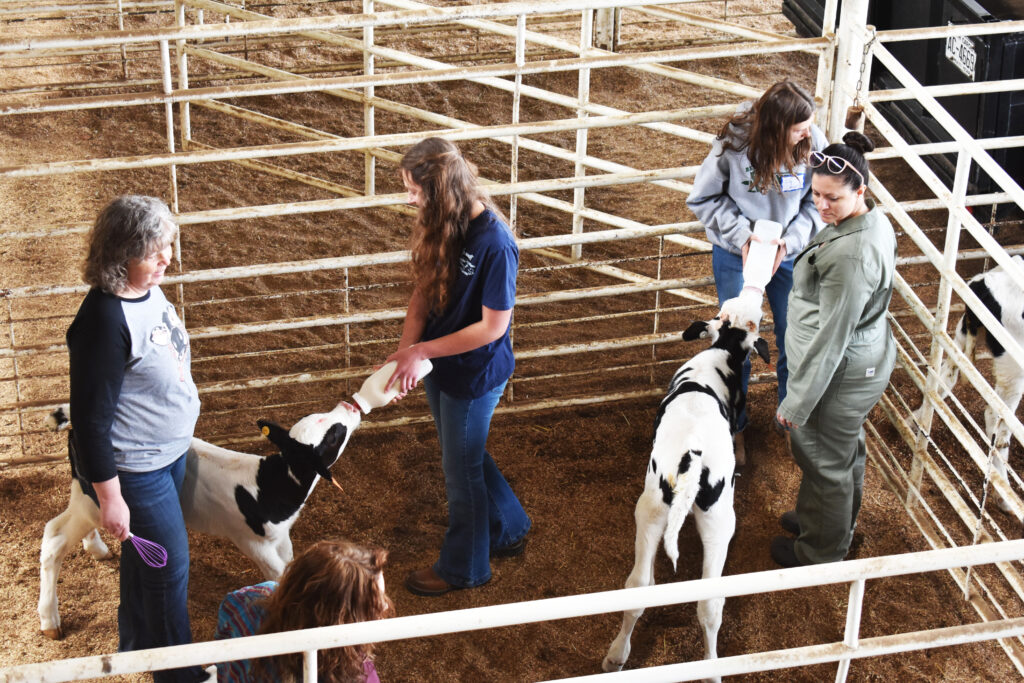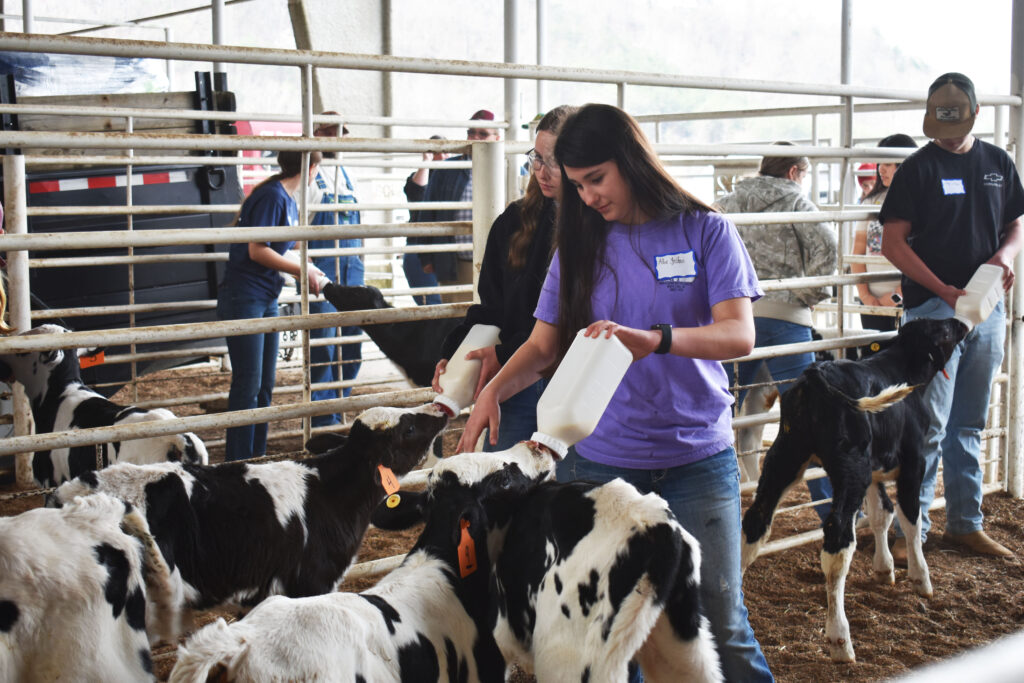2025 WNC Dairy Steer Project
go.ncsu.edu/readext?1066273
en Español / em Português
El inglés es el idioma de control de esta página. En la medida en que haya algún conflicto entre la traducción al inglés y la traducción, el inglés prevalece.
Al hacer clic en el enlace de traducción se activa un servicio de traducción gratuito para convertir la página al español. Al igual que con cualquier traducción por Internet, la conversión no es sensible al contexto y puede que no traduzca el texto en su significado original. NC State Extension no garantiza la exactitud del texto traducido. Por favor, tenga en cuenta que algunas aplicaciones y/o servicios pueden no funcionar como se espera cuando se traducen.
Português
Inglês é o idioma de controle desta página. Na medida que haja algum conflito entre o texto original em Inglês e a tradução, o Inglês prevalece.
Ao clicar no link de tradução, um serviço gratuito de tradução será ativado para converter a página para o Português. Como em qualquer tradução pela internet, a conversão não é sensivel ao contexto e pode não ocorrer a tradução para o significado orginal. O serviço de Extensão da Carolina do Norte (NC State Extension) não garante a exatidão do texto traduzido. Por favor, observe que algumas funções ou serviços podem não funcionar como esperado após a tradução.
English
English is the controlling language of this page. To the extent there is any conflict between the English text and the translation, English controls.
Clicking on the translation link activates a free translation service to convert the page to Spanish. As with any Internet translation, the conversion is not context-sensitive and may not translate the text to its original meaning. NC State Extension does not guarantee the accuracy of the translated text. Please note that some applications and/or services may not function as expected when translated.
Collapse ▲ Saturday, March 29th was a big day for twenty young participants of the 2025 WNC Dairy Steer project, a 4-H program offered through North Carolina Cooperative Extension.
Saturday, March 29th was a big day for twenty young participants of the 2025 WNC Dairy Steer project, a 4-H program offered through North Carolina Cooperative Extension.
The yearly project, currently in its twelfth year, is sponsored by WNC Communities, local Farm Bureaus, WNC Beef Commission, and Purina & Performance Livestock Feed, and provides young people with hands-on experience in animal husbandry. Participants are given a calf and are responsible for the proper care, growth and development of the calf over the course of six months, from late March until early September when the calf will be shown at the NC Mountain State Fair.
Twenty Holstein calves weighing an average of 100 pounds each, waited in the corrals as the participants checked in with Jordan English, 4-H Agent for Buncombe County. The participants, ranging in age from 8 to 17 years old, represented multiple counties of Western North Carolina. Their first assignment was to randomly select a number from a box, each number corresponding to a numbered ear tag on each calf. The number drawn dictated the specific calf they received.
The event began with an educational presentation of North Carolina Cooperative Extension professionals discussing various aspects of the project. Time, responsibility, commitments of the program, and the importance of correct animal care were highly emphasized. Proper animal care is mandatory in any 4-H program and anything less than exemplary animal care is strictly forbidden.
Participants were reminded, and had previously acknowledged, of this being a terminal project, meaning that they agreed to care for the animal from now until September, when the animal will be shown at the North Carolina Mountain State Fair. At the fair, the participants will take part in two programs, one where their skills in presenting their calf will be judged, the other in which the appearance and features of the calf itself will be judged.
Record books play a large part of any 4-H program and the importance of accurate record keeping was discussed. The record books will be judged by Extension personnel experienced in animal care and are expected to include feeding times and amounts, weight and growth of the calf, finances related to the animal’s care, and goals planned and achieved during the phase of the project.
Through the project, participants will learn responsibility and time management. Writing assignments in the record books will further develop their ability to express thoughts and ideas and will showcase their leadership, citizenship, and community service experiences and skills.
Haywood County Livestock Agent Kyla-Jo Farmer presented and explained the supplies provided to each program participant. These included two halters of different sizes, tools such as scoops, whisks, a scale for measuring milk powder, and a weight tape to track the calf’s growth throughout the project.
Veterinarian Beverly Hargus, of Animals-R-Us veterinarian team in Flat Rock, Henderson County, is overseeing the care of the calves during the project.
Dr. Stephanie Ward, Dairy Extension Specialist at NC State University, and Haywood County native, gave a presentation on the basics of calf health and the responsibilities of raising a young Holstein. Topics of her presentation included proper feeding of the calf, animal comfort and well being, proper handling of the animal, and signs and symptoms of digestive and respiratory illness.

Dr. Stephanie Ward gives a presentation at the 2025 Dairy Steer Project orientation day, March 29th, 2025.
Following the presentation, Livestock Agents Abby Whitaker and Kyla-Jo Farmer instructed the group on the proper way to mix milk powder and make bottles. Each participant made two bottles for their calf and fed their calf for the first time, creating a joyful experience for both calf and participant.
After feeding the calves, the participants were required to wash their hands to practice proper hygiene. Dr. Ward continued her presentation, providing hands-on demonstrations of proper handling of the calf, guiding the calf forward and backward, using the harness to walk the calf and to safely maintain control. Proper temperature checking was shown as well as the correct way to use the weight tape to determine the calf’s size and growth progress.

Dr. Stephanie Ward, NC Extension Dairy Specialist, provides a hands on demonstration of proper calf care.
At the conclusion of the event, each participant was given two bags of milk replacement and one bag of feed as they became fully responsible for their new calf.
Moms, dads, grandparents, and children left the livestock market with a new, temporary, addition to their families but also with young minds at work, inspired and equipped to become the stewards of tomorrow’s farms and fields.






